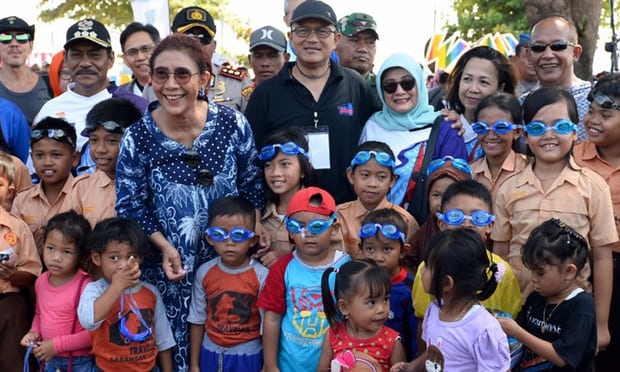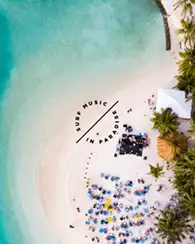“The Eyes” : An Initiative from the Indonesian Government To Preserve Reefs
Indonesia is the world’s biggest marine polluter after China, discarding 3.22m metric tons of waste annually. A January paper published in the journal Science estimated that Indonesian reefs averaged 25.6 plastic pieces per 100sq meter.
This being said, the Indonesia’s Maritime Affairs Minister came up with an unconventional way to encourage young Indonesians to look after their reefs and stimulate the desire to become guardians of the Archipelago’s remote coastal regions.

“Education is the most powerful weapon which you can use to change the world.” Nelson Mandela
Susi Pudijastuti is passionate of snorkeling. To her, giving the young Indonesians “the eyes” is the best way to educate the next generation toward respecting this extraordinary marine environment.
Indonesia’s remote Eastern areas are part of the Coral Triangle, which encompasses a staggering number of corals – roughly 600 various species of reef-building alone – as well as six of the world’s seven marine turtle species, and 2000+ species of reef fish.
“There are things known and there are things unknown, and in between are the doors of perception.” Aldous Huxley

While visiting West Papua, Maluku, Sulawesi and Nusa Tenggara, Pudijastuti spotted Indonesian children were puzzled by the amount of time tourists spent beneath the surface of the ocean, and immediately thought perception was key.
“I just realized in one moment: how can we ask them, how can we push them to take care of the beauty of the underwater world if they don’t even see how beautiful it is. I realized, what we see, they don’t see.”
Two years ago the program was implemented and more than 2000 children in West Papua, Maluku, Sulawesi and Nusa Tenggara received goggles. Upon last visiting, Pudijastuti reported seeing excited, amazed children, inspired by the beauty of their reefs.
Pudijastuti now advocates in favour of a plastic-less country. She has already taken action within her own ministry to reduce single-plastic usage, banning them from Indonesia’s Maritime Affairs and Fisheries Ministry, as well as for ministerial events.
An ban on single-use plastic on a national scale is the desired result.












